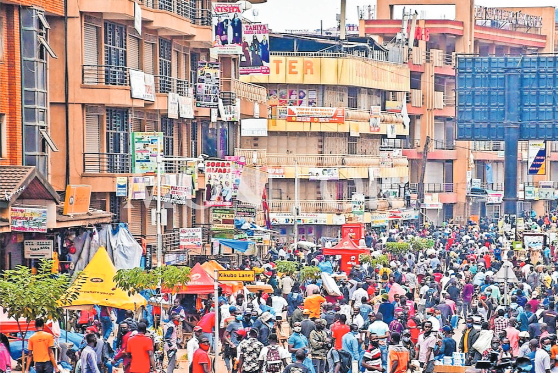Prime
It’s a12-year sentence for causing building accidents

Eng Flavia Bwire
On Sunday six people were confirmed dead after a four storeyed building under construction in Kisenyi, Kampala, collapsed. In the recent past the public and the media has been awash with cases of collapsing buildings mainly in Kampala, Wakiso, Mpigi, and Jinja. Just last month, a building collapsed in Kitebi, Wankulukuku, a Kampala suburb, killing one person. On July 19, a storeyed building collapsed in Kabulengwa Village, Nansana Municipality, killing its owner, Joseph Kaweesa. In March, two people died after a church ceiling collapsed on congregants at Fido Dido building in Kampala.
In these and many other building accidents, the Compliance Monitoring and Investigation Teams comprising architects, engineers, and lawyers of the National Building Review Board, a government body mandated to regulate the building sector, have found out that most of these accidents are due to engagement of inexperienced and unqualified contractors resulting in poor workmanship and construction methods, negligence of professionals even when engaged in building construction supervision, and weak enforcement of the building control laws by the local authorities, among others.
Section 45 of the Building Control Act, 2013, places liability on any person whose negligence, commission or omission causes or leads to the occurrence of an accident on a building construction site, which results in the injury or death of another person, or the destruction of property.
Such a person commits an offence and is liable on conviction to a fine not exceeding 288 currency points (Shs 5,760,000) or to imprisonment not exceeding 12 years or both. Section 45(2) of the same Act states the acts that make one liable under Section 45(1) as; breach of contract, failure to comply with stipulated building procedures and standards, professional negligence, failure to take out insurance for the workers and failure to comply with the Act and regulations made thereunder.
The minister, with the advice of National Building Review Board, has also come up with the Building Control Regulations, 2020 that impose penalties in respect of any contraventions of the law. Regulation seven empowers an owner of a building to report to a professional body for disciplinary action and notify the relevant building committee and NBRB for appropriate action against any professional (architect, engineer, surveyor) who fails to perform his or her duty as required by law under the employment of the owner. It is important to note that such a professional may not only be subject to disciplinary proceedings by the professional body but also be prosecuted by the Director of Public Prosecutions upon recommendation of the building committee.
The general offences and penalties deal with persons who contravene the law (encompasses professionals, developers, contractors) Their actions may include failure to comply with the terms of a notice or conditions issued under the regulations, deviation in any material degree from the approved plan without approval of the building committee, erection of a building in contravention of the regulations and hindrance or obstruction of a building control officer or any person authorised by the building committee in the performance of his or her duties.
Other criminal acts may include submission of a certificate which is substantially false, incorrect or fraudulent, failure to take out worker’s insurance as required by the Workers Compensation Act, 2006,occupation by a building owner, use or granting permission for the use of a building without an occupation permit, causing any building to be altered or used for a purpose other than the purpose shown on the approved plans of the building and use a building for a purpose which causes a change in the class of occupancy.
Any person who commits these offenses upon conviction is liable to a fine not exceeding 48 currency points (Shs 960,000) or imprisonment not exceeding two years or both.
In case of a continuing contravention, an additional fine not exceeding five currency points (Shs.100, 000) for each day during which the contravention continues. A person may also proceed under the Worker’s Compensation Act, 2006 against a person convicted under the regulations where his or her actions result in the injury or death of a person.
The above insights clearly show that all sector players that is; the professionals, developers and ordinary citizens must be held accountable for their actions or inactions.
Eng. Flavia Bwire, Executive Secretary, National Building Review Board




